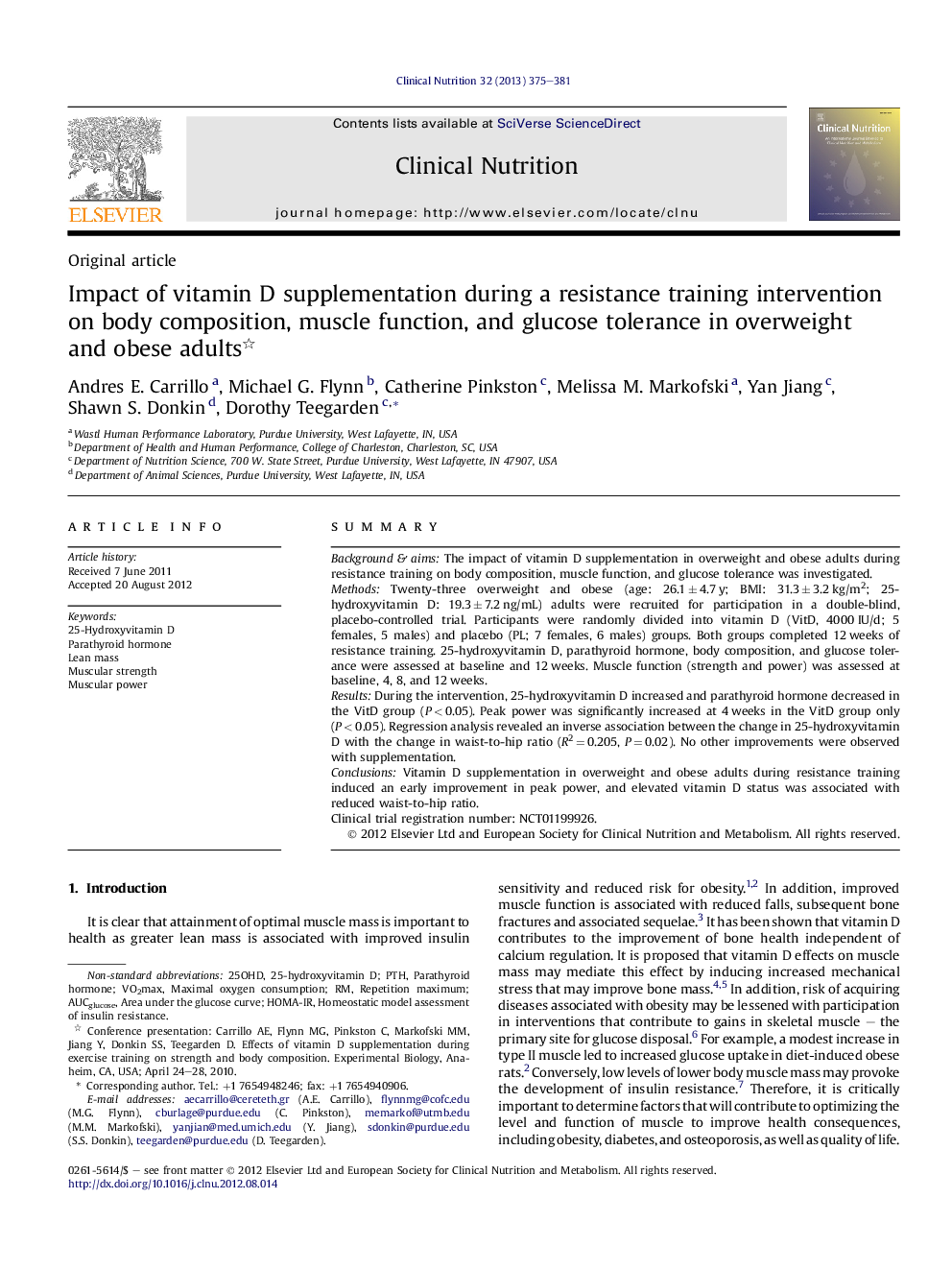| Article ID | Journal | Published Year | Pages | File Type |
|---|---|---|---|---|
| 2686817 | Clinical Nutrition | 2013 | 7 Pages |
SummaryBackground & aimsThe impact of vitamin D supplementation in overweight and obese adults during resistance training on body composition, muscle function, and glucose tolerance was investigated.MethodsTwenty-three overweight and obese (age: 26.1 ± 4.7 y; BMI: 31.3 ± 3.2 kg/m2; 25-hydroxyvitamin D: 19.3 ± 7.2 ng/mL) adults were recruited for participation in a double-blind, placebo-controlled trial. Participants were randomly divided into vitamin D (VitD, 4000 IU/d; 5 females, 5 males) and placebo (PL; 7 females, 6 males) groups. Both groups completed 12 weeks of resistance training. 25-hydroxyvitamin D, parathyroid hormone, body composition, and glucose tolerance were assessed at baseline and 12 weeks. Muscle function (strength and power) was assessed at baseline, 4, 8, and 12 weeks.ResultsDuring the intervention, 25-hydroxyvitamin D increased and parathyroid hormone decreased in the VitD group (P < 0.05). Peak power was significantly increased at 4 weeks in the VitD group only (P < 0.05). Regression analysis revealed an inverse association between the change in 25-hydroxyvitamin D with the change in waist-to-hip ratio (R2 = 0.205, P = 0.02). No other improvements were observed with supplementation.ConclusionsVitamin D supplementation in overweight and obese adults during resistance training induced an early improvement in peak power, and elevated vitamin D status was associated with reduced waist-to-hip ratio.Clinical trial registration number: NCT01199926.
